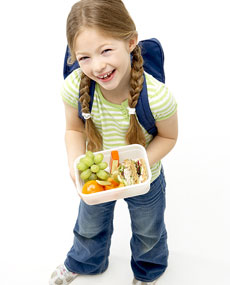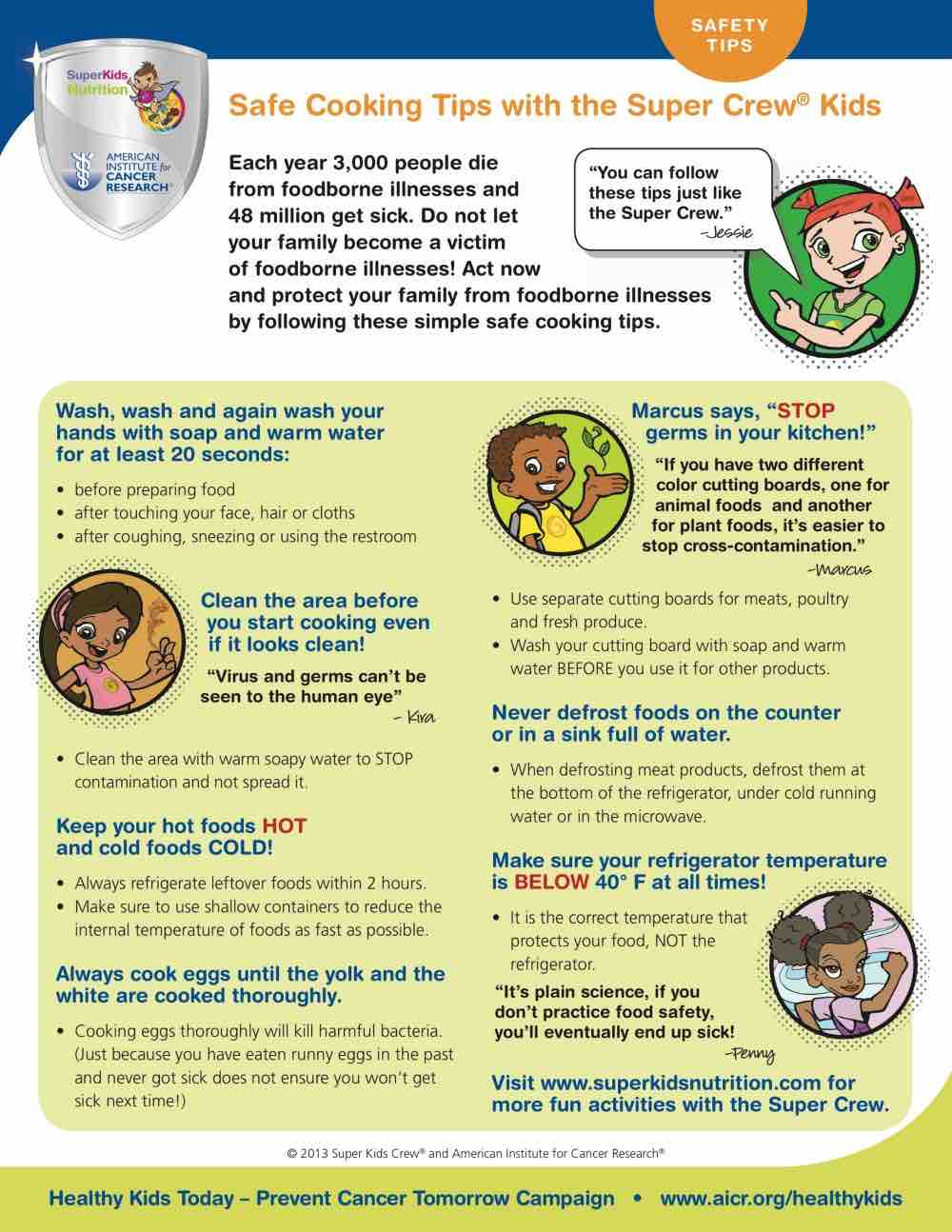
When packing lunch for school, it’s important to keep food safety in mind!
Finding healthy and creative lunch ideas is a challenge in itself, but don’t forget that keeping food safe is equally important. Here’s why it’s important to keep food safe and some easy tips to follow when packing your little one’s lunch.
What’s all the Fuss?
If you’re thinking that it’s only a sandwich, think again! Foods held at unfavorable conditions support the growth of harmful bacteria that can make your child sick. These include foods such as yogurt, cheese, meats, chicken, sliced melon, eggs, fish and tofu. A child’s immune system is not as strong as an adult so they’re more susceptible to becoming ill.
Top 5 Food Safety Tips
Getting ready to prepare another lunch? Although these tips may seem like common sense, many folks forget to follow them and they can make a world of difference.
 #1: Wash Your Hands!
#1: Wash Your Hands!
Sounds easy, but many parents forget to wash their hands before packing lunch. If you take a break to talk on the phone, do another task, or use the restroom, don’t forget to re-wash your hands before continuing to make lunch. Read our Super Crew safety food tips with the kids!
#2: Mind the Time
Cold foods can safely remain at room temperatures for up to 4 hours. If it’s a very hot day, this would be much less time. Ask the school what time your child eats lunch. This way you can add some extra ice packs for those super hot days.
#3: Keep Cold Foods Cold
Find out where bagged lunches are stored. Some schools actually keep them in the refrigerator, but most do not. You want the food to stay around 41 degrees Fahrenheit or below. Use an insulated container and surround it with 1 or 2 ice packs. Note that the ice packs tend to “burst”—so keep them in a small ziplock bag to avoid a mess.
#4: Keep Hot Foods Hot
For a change of pace from the usual sandwich, pack some leftovers from last night’s dinner. Use a thermos to keep food warm. Be sure it will get heated to at least 165 degrees Fahrenheit—this will destroy any bacteria that are already in the food.
#5: Toss Suspect Leftovers
Any old refrigerated food items should be tossed including yogurt, cheese, milk, meat, poultry, sliced fruits, and veggies. The same goes for any leftover cooked food. These foods support the growth of bacteria and you don’t want to risk it. As the saying goes, “when in doubt, throw it out.”












